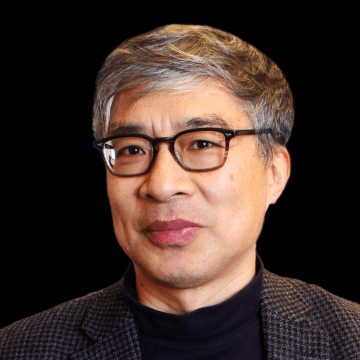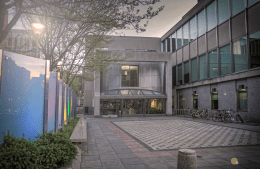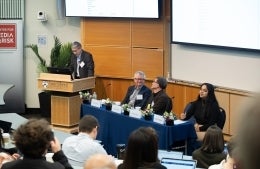
Guobin Yang, Ph.D.

- Grace Lee Boggs Professor of Communication and Sociology
- Director, Center on Digital Culture and Society
Guobin Yang studies social movements, digital culture, global communication, and contemporary China. He takes historical and cultural approaches to the analysis of social and political practices, with a focus on the role of technologies, narratives, and emotions.
Guobin Yang is the Grace Lee Boggs Professor of Communication and Sociology at the Annenberg School for Communication and Department of Sociology at the University of Pennsylvania, where he is Director of the Center on Digital Culture and Society, and Deputy Director of the Center for the Study of Contemporary China. He is the author of The Wuhan Lockdown (2022; also see here), The Red Guard Generation and Political Activism in China (2016), and the award-winning The Power of the Internet in China: Citizen Activism Online (2009). His current work focuses on digital activism, civic storytelling, and the digital politics of emotions.
Yang has edited or co-edited seven books, including Pandemic Crossings: Digital Technology, Everyday Experience, and Governance in the COVID-19 Crisis (with Bingchun Meng and Elaine Yuan, 2024), Engaging Social Media in China: Platforms, Publics, and Production (with Wei Wang, 2021), Media Activism in the Digital Age (with Victor Pickard, 2017), The Internet, Social Media, and a Changing China (with Jacques deLisle and Avery Goldstein, 2016), China's Contested Internet (2015), and Re-Envisioning the Chinese Revolution: The Politics and Poetics of Collective Memories in Reform China (with Ching-Kwan Lee, 2007). His 2-volume Dragon-Carving and the Literary Mind (2003) is an annotated English translation of the 6th-century Chinese classic of rhetoric and literary theory Wenxin Diaolong (see here for condensed bilingual kindle edition).
An elected Fellow of the International Communication Association, Yang serves on the editorial boards of Social Media + Society, The International Journal of Press/Politics, International Journal of Communication, Global Media and China, China Information, Chinese Journal of Sociology, Sociological Forum, and on the advisory boards of Emotions and Society and Asiascape: Digital Asia. He is a former co-editor of Communication and the Public.
Yang received a John D. and Catherine T. MacArthur Foundation “Writing and Research Grant” (2003) and was a fellow at the Woodrow Wilson International Center for Scholars in Washington, D.C. (2003-2004). Previously Yang taught as an assistant professor of sociology at the University of Hawaii at Manoa and as an associate professor of Asian and Middle Eastern Cultures at Barnard College of Columbia University.
Education
- Ph.D., Beijing Foreign Studies University
- Ph.D., New York University
Selected Publications
“Building a Public Culture of Pandemic Storytelling.” Public Culture, 2023.
“Postcritical Sensibilities for the Study of the COVID-19 Pandemic.” Media Theory, 2023.
“Online Lockdown Diaries as Endurance Art.” AI & Society, 2021.
Media Activism in the Digital Age. Routledge, 2017.
The Red Guard Generation and Political Activism in China. Columbia University Press, 2016.
The Internet, Social Media, and a Changing China. University of Pennsylvania Press, 2016.
China’s Contested Internet. NIAS Press, 2015.
The Power of the Internet in China: Citizen Activism Online. Columbia University Press, 2009.
Courses
- COMM 2640 Media, Culture, and Society in Contemporary China
- COMM 2620 Social Movements
- COMM 8820 Theories of Revolutions and Social Movements
- COMM 5230 Qualitative Ways of Knowing
- COMM 8810 The Performance Society: Readings in Social and Media Theories
- COMM 5610 Cultural Sociology

Mourning Li Wenliang, the Whistleblower of COVID-19, on the Chinese Internet
In a new paper, Professor Guobin Yang analyzes how Chinese social media users eulogized Li Wenliang through an ancient literary form.




